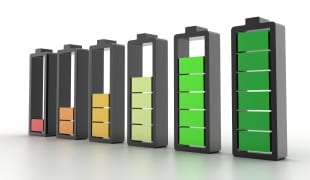 In the first article of this three-part series, I described how utilities face a real crisis. Their current business models are failing to provide electricity in a way that satisfies their customers. Furthermore, their grid-focused approach is generating real competitor risk to their organizations as energy-democratizing technology creates new, financially appealing opportunities for consumers.
In the first article of this three-part series, I described how utilities face a real crisis. Their current business models are failing to provide electricity in a way that satisfies their customers. Furthermore, their grid-focused approach is generating real competitor risk to their organizations as energy-democratizing technology creates new, financially appealing opportunities for consumers.
But all is not lost. Utilities have the opportunity to create a grand vision that will help them to re-position their businesses and ensure a long and prosperous future. Furthermore, if they start to consider the changing market place there are as many business opportunities as there is competitive risk.
In this article, I will look at how utilities must address positioning and product questions that will allow them to pivot their businesses and remain successful.
Positioning – command the high ground
Positioning is all about finding a high value offering and defending it. Until now, utilities have held an impenetrable position in the market, but solar and battery storage is about to change that. So let us come back to a simple SWOT analysis to assess their options (but keeping it customer focused).
| Strengths | Weaknesses |
| Existing connection to every home and businessExcellent understanding of how to control powerAbility to provide power safely and reliablyStrong relationships with regulatorsAccess to low cost, long-term finance | High risk of stranded legacy assets Current business model is not capable of adapting to the changing technology environmentWeak customer relationship and limited abilities to change that |
| Opportunities | Threats |
| New “smart” technology is creating new opportunities to deliver enhanced services to customersDistributed renewable energy and storage technologies are quickly becoming cost effective for grid integrationThere is appetite by regulators to protect utilities | The ‘death spiral’ is startingRegulation is limiting a utilities ability to competeHigh risk of innovative businesses capturing customer base (e.g. solar plus storage)High risk of further eroded electricity demandUtilities are not meeting customer expectations |
From this simple analysis, we see that utilities can still hold a winning position. But utilities must leverage their strengths while embracing new technology opportunities to position themselves as energy enablers. To this end, they need to think beyond services provided by the grid to services provided behind the meter, for example with the home. This will require utilities to address the issues of stranded asset risk and their poor customer relationships. It will also require them to develop new business models and promote the development of new, supporting regulation.
Product – in the business of energy enabling services
If utilities move from being electricity distributors to energy enablers, and their customers shift from being consumers to prosumers then a whole new set of services are required. A few customer-focused product (i.e. service) ideas of how this might be achieved are as follows:
- Leasing of solar and battery storage for prosumers
- Enabling prosumers to sell power to their neighbours or other consumers
- Ownership and leasing of e-Car batteries
- Aggregation of prosumers so they can provide their power or consumption flexibility to the market pool
- Personalized energy management reports and analyses like those provided by Opower
- Providing back-up power services from the grid (yes, it’s time to consider this)
This is by no means an exhaustive list but all of these ideas show how utilities can start thinking ‘customer first’. They also show how it would be necessary for the utilities to work with regulators to make it possible for them to deliver such services. It is also worth mentioning that all of these services can help utilities achieve better control of the frequency and voltage of their existing grids.
In Part 3, I’ll consider how careful pricing and business model design are critical for the success of utilities in the future, and what promotion, people and processes are required to support them.
James Allston, an Australian, is the Strategic Marketing Manager for Energy & Environmental Services at Siemens AG in Germany, and a co-founder and former Vice-President of the Energy Efficiency Council in Australia. He is a specialist in strategically marketing and developing businesses that create a sustainable energy future. His views are his own and not representative of Siemens AG or its subsidiaries.







